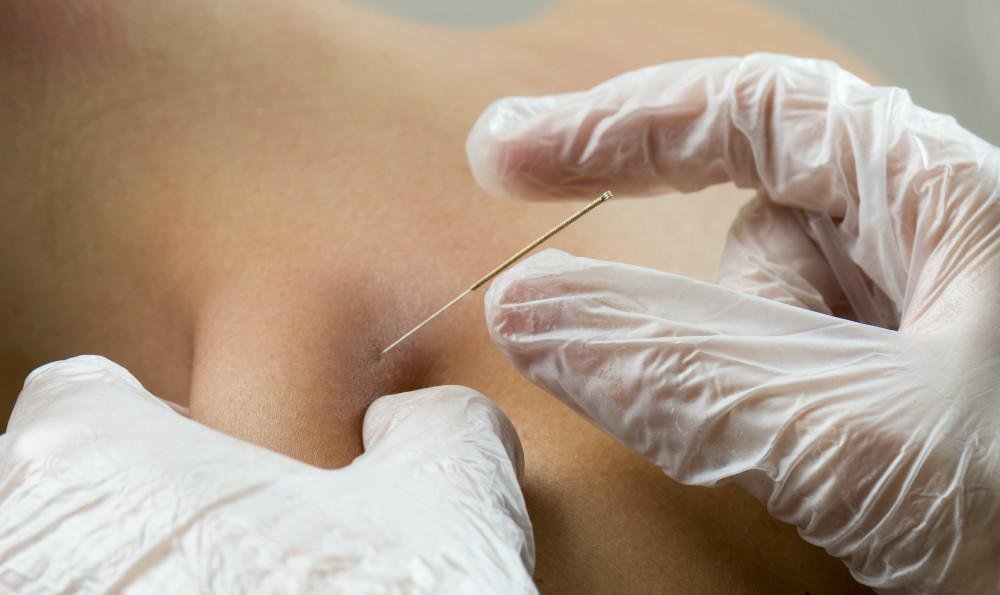Food allergies are a common health concern affecting millions worldwide, leading to symptoms that range from mild discomfort to life-threatening reactions. While conventional treatments typically focus on avoiding allergens and managing symptoms with medications like antihistamines or epinephrine, alternative therapies, including acupuncture, are gaining attention as complementary approaches to managing food allergies. Acupuncture, a traditional Chinese medicine practice, involves inserting thin needles into specific points on the body to restore balance and promote healing. But how effective is it for food allergies?
Understanding Food Allergies
A food allergy occurs when the immune system mistakenly identifies certain proteins in food as harmful, triggering an allergic reaction. Common symptoms include hives, itching, swelling, digestive issues, and, in severe cases, anaphylaxis—a life-threatening condition that requires immediate medical attention. Common food allergens include peanuts, shellfish, milk, eggs, and soy.
For many people with food allergies, the primary method of management is avoidance of the allergen, combined with carrying emergency medication. However, this strategy can be challenging, especially in environments where cross-contamination or hidden ingredients are possible. As a result, some people turn to acupuncture as a holistic treatment option that might help reduce their sensitivity to allergens.
The Concept of Acupuncture
Acupuncture is based on the principles of Traditional Chinese Medicine (TCM), which views the body as an interconnected system of energy, or “Qi” (pronounced “chee”). Qi flows through pathways called meridians, and any disruption in this flow is thought to cause illness or imbalance. Acupuncture seeks to restore the balance of Qi by stimulating specific points on the body with fine needles, helping to boost the immune system, reduce inflammation, and promote overall wellness.
For food allergies, acupuncture practitioners believe that certain points on the body can influence the immune system’s response to allergens. By targeting these points, acupuncture may help regulate immune function, reduce the severity of allergic reactions, and improve the body’s ability to tolerate certain foods.
How Acupuncture Might Help with Food Allergies
While scientific research on acupuncture for food allergies is still in its early stages, some theories explain how acupuncture might be beneficial in managing allergic reactions:
1. Modulating the Immune System
One of the key benefits attributed to acupuncture is its potential ability to regulate the immune system. Food allergies are the result of an overactive immune response, so modulating this response could reduce symptoms. Acupuncture may influence the production of specific immune cells, such as T-cells and mast cells, which play a role in allergic reactions.
- Benefit: By calming an overreactive immune system, acupuncture may help minimize the intensity of allergic responses to food.
2. Reducing Inflammation
Inflammation is a central component of allergic reactions, with histamine release leading to symptoms like swelling, itching, and digestive issues. Acupuncture has been shown to reduce inflammation in various studies by influencing the body’s inflammatory pathways.
- Benefit: Reduced inflammation can alleviate some of the discomfort associated with food allergies, such as skin rashes or gastrointestinal problems.
3. Promoting Digestive Health
Acupuncture is often used to treat a range of digestive disorders, which is significant because food allergies frequently involve the digestive system. By supporting digestive function and gut health, acupuncture may help the body process foods more effectively, potentially lowering the risk of allergic reactions.
- Benefit: A healthier digestive system may be less prone to adverse reactions triggered by certain foods.
4. Enhancing Stress Management
Stress is known to exacerbate allergic reactions by weakening the immune system and increasing inflammation. Acupuncture is well-known for its stress-relieving benefits, as it promotes relaxation and the release of endorphins.
- Benefit: By reducing stress, acupuncture may help mitigate the intensity of allergic reactions in susceptible individuals.
Scientific Evidence for Acupuncture in Food Allergy Treatment
While acupuncture has been extensively studied for conditions such as pain management, stress relief, and anxiety, its effectiveness for food allergies specifically is still under investigation. Here are some insights from current research:
- Allergic Rhinitis: Several studies have shown that acupuncture can be effective in reducing symptoms of allergic rhinitis (hay fever), a condition with similarities to food allergies in terms of immune system overreaction. Patients have experienced fewer symptoms and reduced need for antihistamines after acupuncture treatment.
- Immune Response Studies: Some research has demonstrated that acupuncture can regulate immune responses, such as reducing histamine levels and modulating the activity of immune cells. These findings suggest that acupuncture may help control the excessive immune response seen in food allergies.
- Limited Studies on Food Allergies: Although there is some anecdotal evidence and smaller studies suggesting that acupuncture may help with food allergies, there is a need for larger, more rigorous clinical trials to establish its efficacy in this area.
Acupuncture Points for Food Allergies
In Traditional Chinese Medicine, specific acupuncture points are used to address food allergies. These points are believed to influence immune function, digestive health, and overall energy balance. Some of the commonly targeted points include:
- LI-4 (He Gu): Located between the thumb and index finger, this point is often used to boost immune function and reduce inflammation.
- ST-36 (Zu San Li): Located below the knee, this point is known for its digestive benefits and is often used in treatments aimed at improving gut health.
- SP-6 (San Yin Jiao): Located on the inner leg, this point helps regulate the digestive system and strengthen the immune response.
- Ren-12 (Zhongwan): Located on the midline of the abdomen, this point is used to treat digestive issues, including those related to food allergies.
The Role of Acupuncture as Part of a Holistic Approach
Acupuncture for food allergies should not be viewed as a standalone treatment, especially for individuals at risk of severe allergic reactions. It is best used as part of a holistic approach to allergy management, which includes traditional medical treatments, dietary modifications, and avoidance of allergens.
Many individuals use acupuncture to complement their existing food allergy treatments. It may help reduce the frequency and severity of reactions, improve digestion, and promote overall well-being. However, it is crucial to consult with both a healthcare provider and a qualified acupuncturist to ensure that acupuncture fits within a comprehensive allergy management plan.
Benefits and Considerations
Benefits:
- Non-invasive: Acupuncture is a minimally invasive therapy with few side effects, making it an attractive option for those looking to avoid medications or more invasive treatments.
- Holistic health improvement: Beyond addressing allergies, acupuncture offers a wide range of health benefits, including stress relief and improved digestion, which can indirectly help with allergy management.
- Complementary to traditional treatments: Acupuncture can be used alongside conventional treatments like antihistamines, allowing for a more comprehensive approach to managing food allergies.
Considerations:
- Limited research: While acupuncture has been proven effective for other allergic conditions, more research is needed to confirm its effectiveness specifically for food allergies.
- Not a cure: Acupuncture may help reduce symptoms, but it is not a cure for food allergies. Patients must continue to follow their allergist’s guidelines, including avoidance of known allergens and carrying emergency medications.
Conclusion
Acupuncture is emerging as a promising complementary therapy for food allergies, with potential benefits in modulating the immune system, reducing inflammation, and improving digestion. While more research is needed to fully understand its role in food allergy treatment, many individuals find relief from allergic symptoms through regular acupuncture sessions.
For those with food allergies, acupuncture can be an excellent addition to a holistic treatment plan, offering both physical and mental benefits. However, as with any medical treatment, it is essential to consult with healthcare professionals and work with a licensed acupuncturist to ensure the best outcomes.











